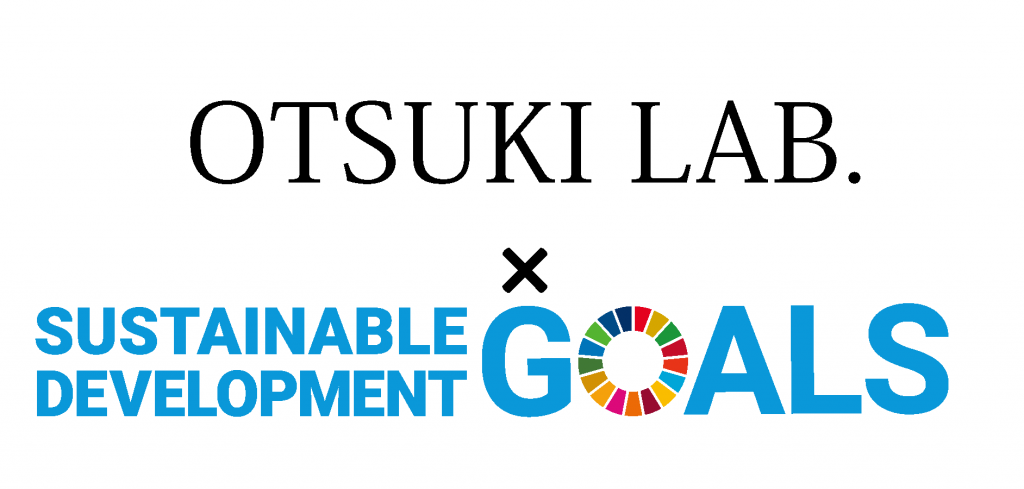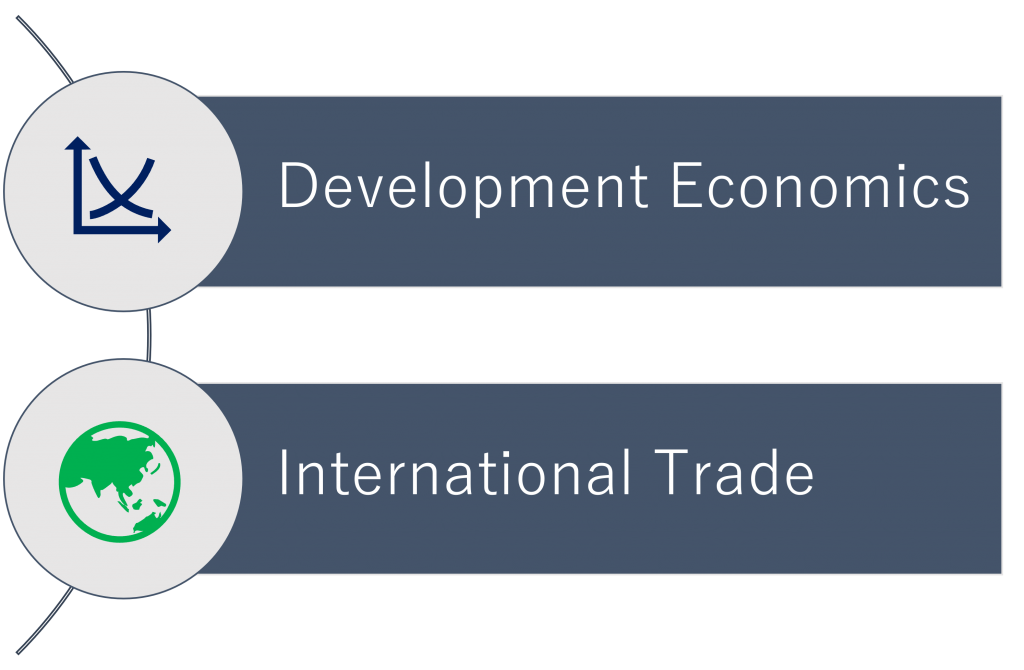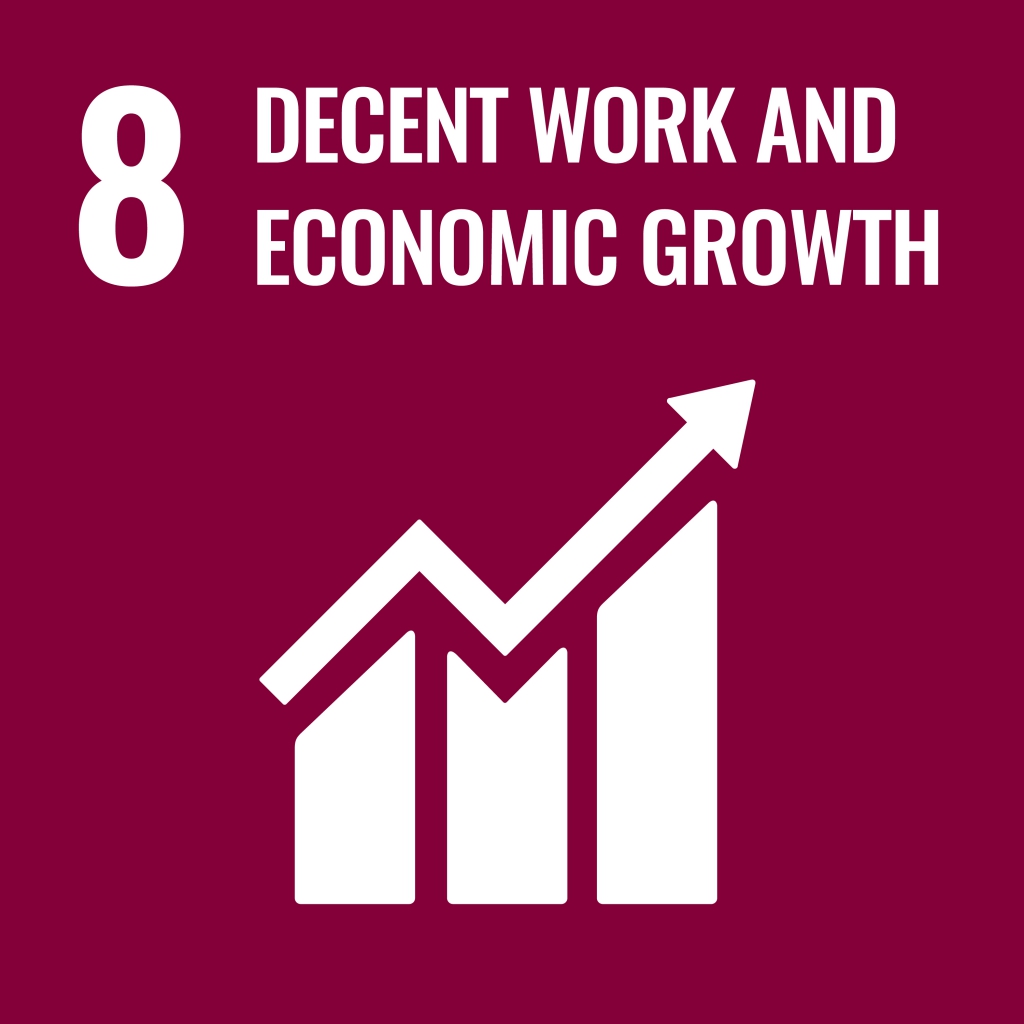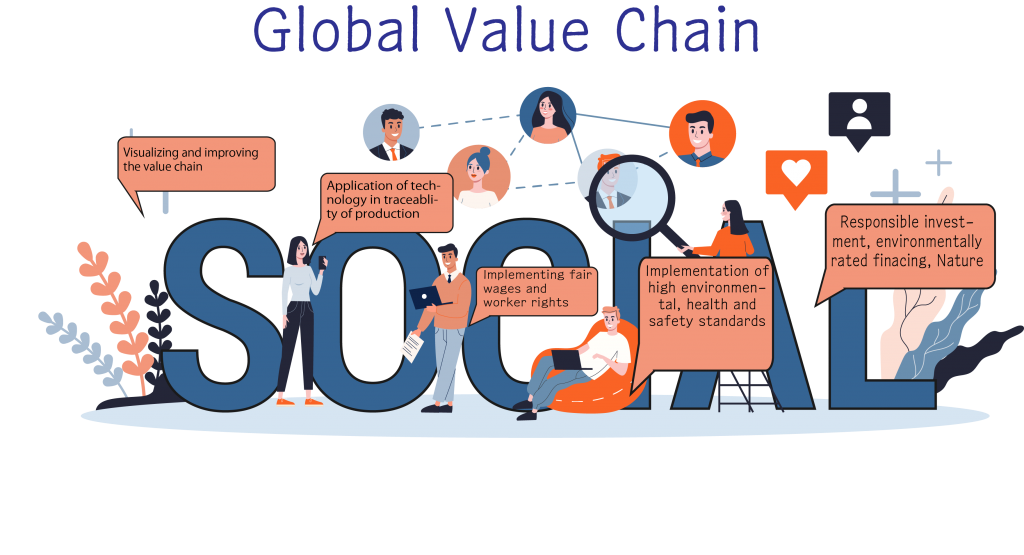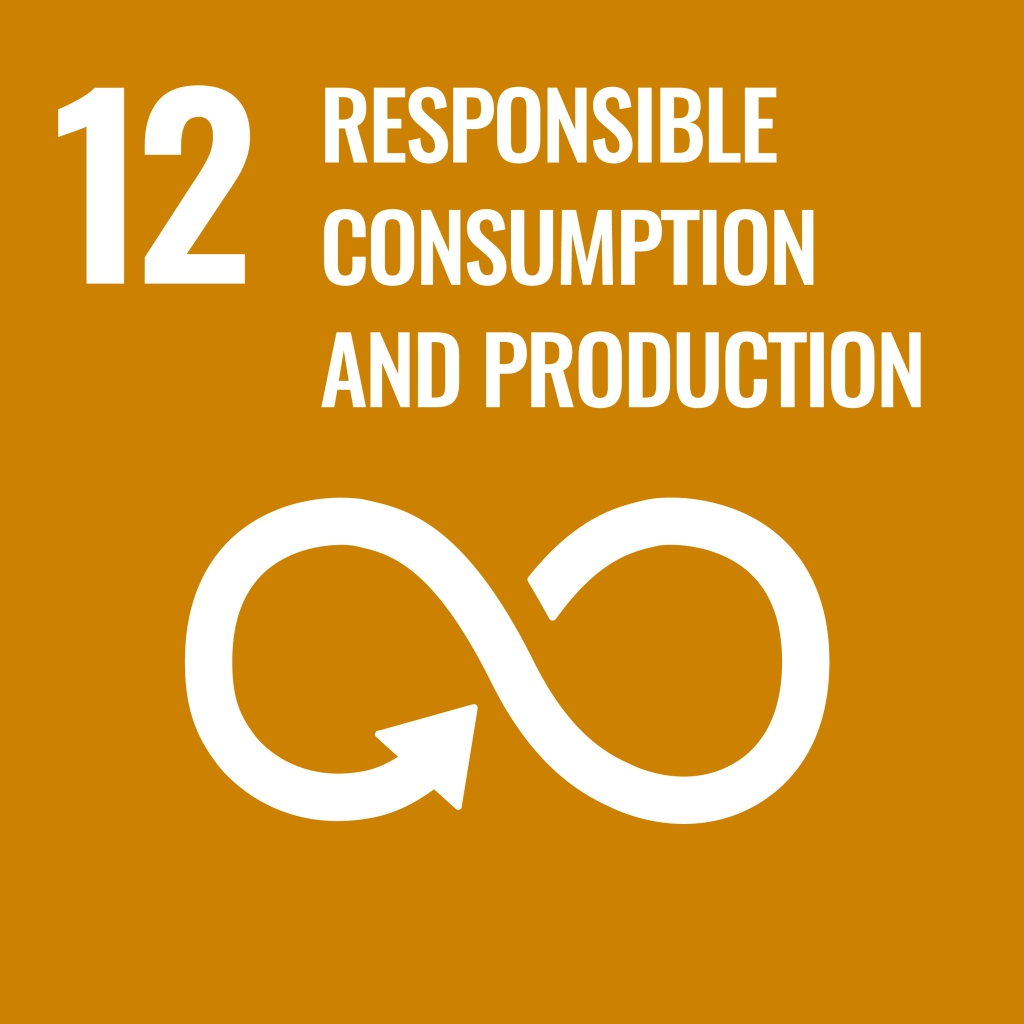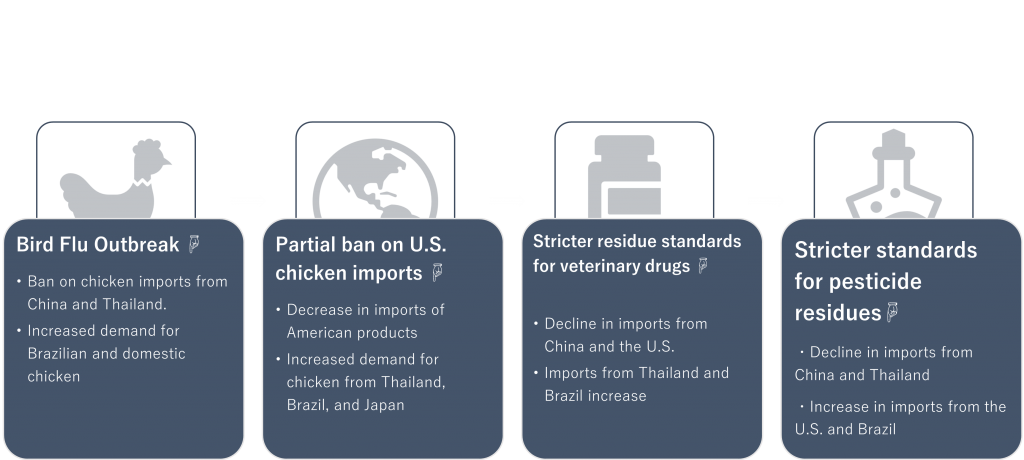We are investigating the causes of poverty in developing countries from the perspective of economics, and searching for effective policies for economic development.
It is becoming increasingly difficult to ignore the impact of the global financial crisis on all countries. Therefore, in many cases, national economic policies have to be carried out while coordinating the interests of different nations. For example, promoting industrialization in developing countries will accelerate global warming, but it is in conflict with the developed countries that are responsible for reducing global warming, so a balance must be struck between the interests of each country.
 Prof.OTSUKI
Prof.OTSUKIOur goal is to investigate ways of cooperation that can be mutually beneficial, and to propose appropriate policies that will enable economic growth for each side.
We are conducting empirical research to improve the international competitiveness of companies and agricultural producers in developing countries.
In order to increase the international competitiveness of developing countries, it is important for them to continue to supply products with technologies that comply with overseas markets that require high environmental and safety standards. Although these standards are desirable from the perspective of consumer safety, the technical cost of compliance can be an obstacle to non-tariff trade, so it is necessary to adjust the added value in the process of interest and trade mechanism among countries.
- What is a global chain ?
-
It refers to the chain of added value that is created between production processes located across multiple countries until goods and services are delivered. By dividing the production process and distributing it across different countries, the goal is to reduce costs and achieve economies of scale.



We will establish a global chain that can recommend appropriate policies based on an understanding of these impacts and an empirical approach to developing a system that enables people to enjoy the benefits.
We quantify and analyze the impact of technical regulations on trade to ensure food safety.
Ensuring food safety is extremely important to protect the health of consumers. Stricter technical regulations, such as sanitary and phytosanitary standards for imports and technical barriers to trade, can ensure food safety, but the effect of economies of scale will be smaller and trade will be reduced.



Let us now introduce our analysis of consumer attitudes toward food.
- At the market level, demand is changing based on food safety.
- At the consumer level, people are willing to pay higher prices for safer food.
- At the policy level, food safety regulations need to the interests of producers and the risks to consumers. Suppliers in developing countries need to invest in food security to increase their export opportunities to developed countries.



We will examine the actual increase or decrease in demand in each country through technical import restrictions, and recommend appropriate measures for those balances that will be mutually beneficial.

